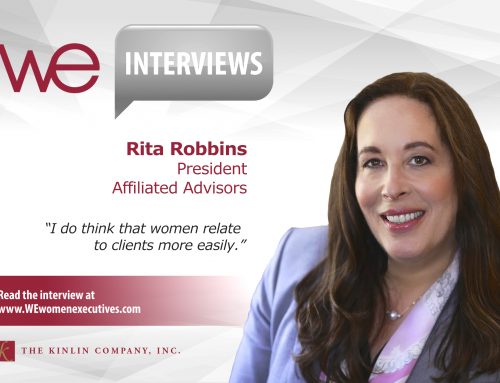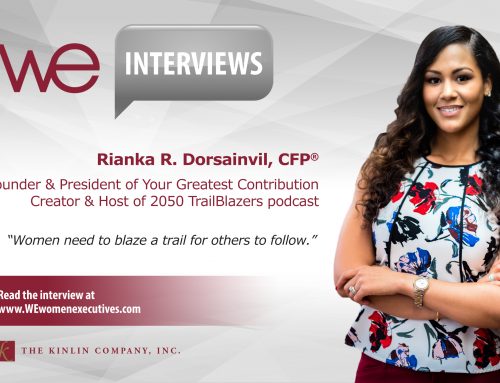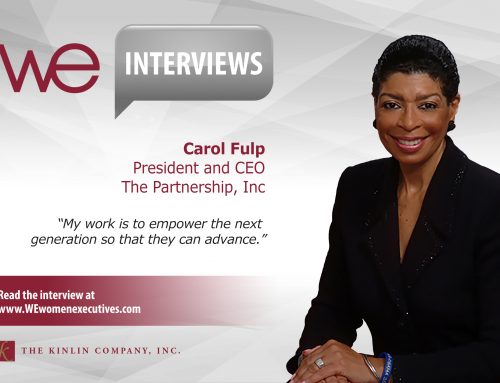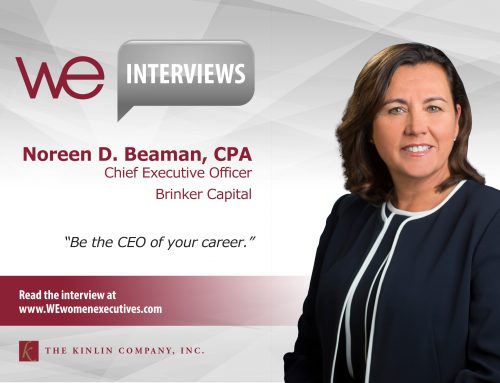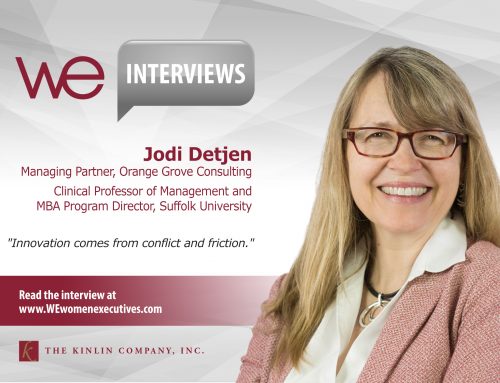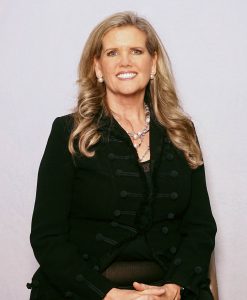 Marie Dzanis
Marie Dzanis
Head of Intermediary and Wealth Distribution
Northern Trust Asset Management
As head of intermediary and wealth distribution at Northern Trust Asset Management, Marie Dzanis leads a team of 65 to establish Northern Trust’s presence across multiple markets, working with intermediaries and serving the wealth channel.
We recently sat down to talk about current trends she’s watching, lessons she’s learned in her years in the business and causes that capture her heart.
Change is growth
You worked in many of the industry’s top firms – BlackRock, JP Morgan Asset Management, Smith Barney – before joining Northern Trust, and in 2015, you were named one of the top women in asset management by Money Management Executive. Given your depth of experience in the field, what industry trends are you watching most closely, and what developments most excite you?
“One of the advantages in this industry is that there’s no set career path. You’re not penalized if you go in different directions, because the more well-rounded you are, the better it is for your career.
“From a trends standpoint, it’s great to see that technology is changing the way we engage with our clients. It’s having a tremendous impact, and I don’t just mean robo-advisory. Technology on many levels is enabling us to market better, segment better, understand client needs and intuitively serve them differently, and provide investment solutions.
“I also like to see that we are integrating more diversity. There’s a growing segment of female leadership, but also diversity in general at all levels of an organization. Part of that is because investors and companies are more broadly understanding and appreciating the value that diversity brings. It brings positive impact to boards and has been shown that diversity helps businesses run well. There’s also generational growth, which is very exciting. We’re seeing an emergence of younger talent coming into the market space, and they work very differently. This is particularly important because, according to Forbes, the average age of a financial advisor in the U.S. today is 51. Not every manager knows how to engage younger talent, but if we can help this group achieve their potential, we will have strong business results and groom the next generation of business executives.
“Going forward, we have to get better at understanding how to communicate to different generations and be thoughtful about how we can serve clients and engage prospects through that lens. Management also has to understand how to grow talent effectively. As an industry, we can develop better hiring practices, heighten awareness of diversity, and foster the growth of younger talent, and it will ultimately serve our clients in a better way.”
Awareness is key
Marie’s comments on diversity prompted another question. I’ve had three calls in the last several months from wealth-management firms specifically seeking female advisors, I explained. Why do you think this is happening?
“According to recent Wall Street Journal and Morningstar reports, women represent just 7 percent of those working in the asset-management industry and 15 percent of those working in the financial advisor community. That’s a low number. I believe a big part of the challenge is job awareness. Initially, when someone graduates, she may be looking for a more structured salary, and a lot of jobs in financial services don’t consistently offer that. If you look at the success ratio for some of the top female financial advisors in the industry, however, you see that they do wonderfully well at the job. It presents options for life balance. And if you run your own practice and do it well, the sky’s the limit. So, the industry needs an educational process to explain what roles are available, what the career path looks like, and what the timeframe and grooming look like. When firms start initiating successful career-pathing mechanisms that can foster this growth, I think you’ll start to see those numbers change.”
Integrity is critical
Marie’s remarks on talent development offered a perfect segue into my next question. You’re hiring top talent for multiple channels. Are there any specific qualities or experience that set candidates apart?
“I have three deal-breakers. Number one is integrity. I spend a lot of time up front asking questions about what people think is the right thing to do and why. It’s an important facet of understanding how to hire successful talent, because I’m not teaching people rules, especially senior executives. I’m teaching people to think, because as a manager, you’re operating in the gray area at all times, and good judgment is important.
“Number two is drive – it’s important in any kind of business, but particularly in sales. This is a tough job to begin with – it entails many long, thankless hours. You’ve got to want to do this and see the vision. I’m only the rudder on this ship, providing them guidance. They have to get a kick out of what they do. If they’re truly curious and they like what they’re doing, they’re in their zone. They become playful. They try new things. They take calculated risks. It becomes a different level of happiness that ultimately leads to joy and satisfaction.
“Number three is execution, particularly for salespeople. There can be extremes on execution: They could be ready-fire-aim, or they could have analysis paralysis. The best salespeople need to be able to speak to a CFO or a CIO — somebody who’s making investment decisions – and have credibility, but they have to be able to take action, too, and finding somebody that’s not too far on either side of the spectrum can be very difficult.”
Differences are valuable
Having gained a sense of Marie’s concerns as a leader, I was eager to turn the discussion to more personal topics. How have you realized such success in a male-dominated field, I inquired, and what lessons have you learned along the way?
“I’ve had great mentors, people who were cheerleaders and told me, ‘Stick it out, hang in there, do the right thing.’ But later in my career, the concept of mentor took on a different meaning for me. I personally didn’t want a mentor who was very like-minded; I searched out coaches who were very different from me. The more opposite they were, the more I grimaced when I heard their feedback, the more I believed, ‘That’s the person I need to know, because that’s the person I need to understand how to work with.’ The farther up the food chain you go, the greater the need to operate successfully with all types of people. As it turns out, some of my greatest allies and coaches were people who would tell me the truth and who thought very differently from me. I think I’ve learned the most from these people.
“Connecting the dots and having a network of industry connections is vital. It’s great for your sanity when you have challenging times in your career, and it’s great for networking. I would absolutely recommend that women start networking early and connect with people outside the industry. A good network is critical for success. That way, as you move forward in your career, you’ll have friends who have seen similar challenges, or can give you competitive intel on how your company is viewed, or simply ground you.”
Passion is essential
Marie’s comments about networking led naturally to my next question regarding her extensive committee and board work. What drives your involvement in these groups, and how do they feed back into your day-to-day work?
“I got great advice from the CEO of a firm outside of our industry who said, ‘Be selfish with your time and understand what these boards want from you.’ I promised myself I would only commit to things that I’m passionate about, because I never want to be less than full-on involved. I find that the best use of my time is doing something productive, especially around things that give me joy.
“I learned about Maggie Doyne, the subject of the documentary “Love Letters to My Children,” because my husband was in sports marketing and his company was involved with something called the ‘Do Something Awards,’ and this 19-year-old woman won. She had taken a gap year after college and gone to Nepal, then she decided to stay because she found these kids breaking rocks on the side of the road to sell as gravel to live. She built a school for 350 orphans in Nepal, as well as a children’s home where she’s the legally adopted mother of 54 Nepalese kids.
“At first, we started helping financially in 2009, and then we donated a classroom, and then we wound up donating another classroom and getting more and more involved. Then finally, we decided to underwrite the filming of a documentary about Maggie’s efforts, which will be released later this year. Her initiative is something that not only resonates with me personally, but also speaks to the importance of education for children, which is a theme for me. Any of that work that I’ve done for personal desire has risen from the belief that if you can engage children at an early age and give them an education, you can change the world.”
Diversity is essential
A few months ago, I was interviewed by a Wall Street Journal reporter who queried me about firms that are truly doing something unique to help middle management female managers get ahead. Is Northern Trust doing anything unique in this regard?
“Northern Trust has received numerous awards for being a preferred place to work. We pride ourselves on our culture – we are committed to people. Our president, Shundrawn Thomas, is supremely committed to diversity for many reasons, but even before he took the helm, we held events such as executive women forums, where we would get together and talk about diversity. We would do 360 reviews and talks. We have a mentorship/sponsorship program through which we engage with a certain level of talent, and we take our talent review process very seriously. We map out talent, identifying those who can advance and the timing by which that should happen. Those efforts were pre-Shundrawn, but when he took over as president of the asset-management business in October of last year, he formalized the firm’s commitment to diversity. And people are noticing. Earlier this year, Northern Trust was named in a Forbes study as the best employer for diversity.”
Connections are key
I ended our interview by posing my favorite question to Marie: what tips would you give to women who are struggling to advance their careers?
- Understand that industry connections are vital. You can never have too many connections. Get yourself out there – attend conferences and industry events, utilize LinkedIn, make sure you’re seen. Volunteer to interview people on panels and do other things like that that get you in the mix. That way, you’re more likely to learn about opportunities in advance.
- Do your best to connect the dots. Think about what you love to do and how it relates to what you’re doing or what you want to do, and you’ll become happy. I’ve always been able to connect the dots with things I love to do and stay in my zone. And when you’re in your zone, when you produce good work, the results speak for themselves.

